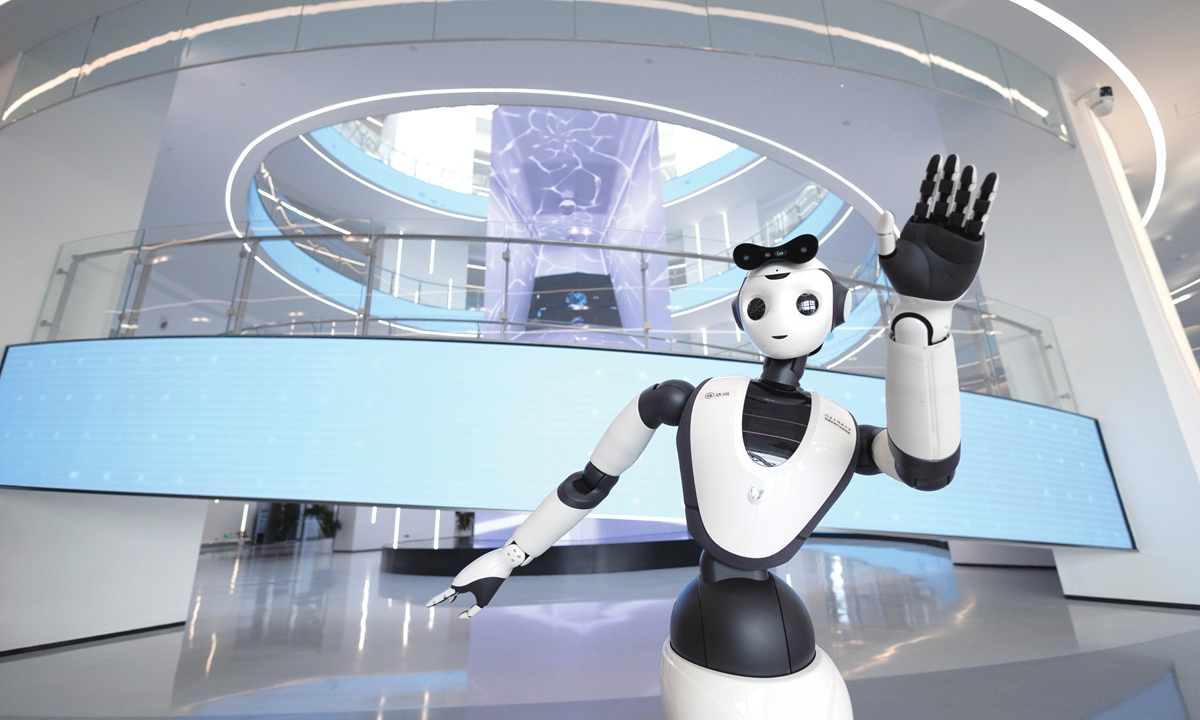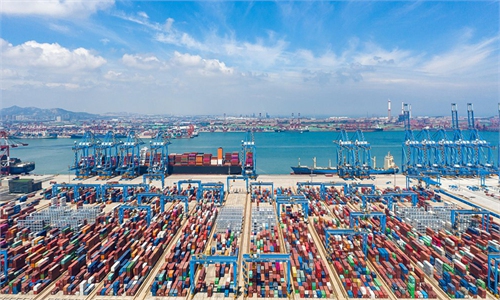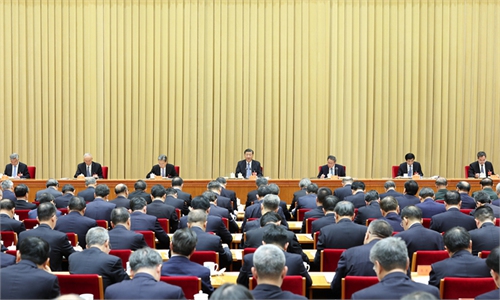Sci-tech innovation will be top priority of China's 2024 economic work
Analysts expect more policies that encourage enterprises to make breakthroughs

The World Internet Science and Technology Museum officially opened in Wuzhen, East China's Zhejiang Province on November 7, 2023, which is the world's first large-scale technology museum themed on the Internet. Photo: IC
The tone-setting meeting for the priorities of China's economic work in 2024, held from Monday to Tuesday, put scientific and technological innovation at the first place among the priorities in nine aspects. Analysts pointed out that the focus of next year's economic work is still on industrial transformation and upgrading, as well as on raising the level of productivity through science and technology.
According to a readout of the annual Central Economic Work Conference following its conclusion, "sci-tech innovation should lead the development of a modern industrial system," the Xinhua News Agency reported.
It is expected that more policies that encourage enterprises to innovate will be released, as the dominant position of enterprises in sci-tech innovation should be strengthened, analysts said.
They noted that the key meeting has shown China's firm confidence and determination to take the path of becoming a strong country in science and technology, especially amid the US tech blockade against China.
The meeting called for promoting industrial innovation through sci-tech innovation, and in particular forging new industries, models and impetus with disruptive and cutting-edge technologies, according to Xinhua.
The key meeting called for nurturing strategic emerging industries including biological manufacturing, the commercial space industry and low-altitude economy, and opening up new arenas for the industries of the future such as quantum technology and life sciences.
China is actively developing artificial intelligence (AI), quantum information, biological manufacturing and other cutting-edge sci-tech fields. These disruptive technologies are expected to help China break the US sci-tech blockade and achieve self-reliance, Zhang Xiaorong, director of the Beijing-based Cutting-Edge Technology Research Institute, told the Global Times on Wednesday.
The chief economist of the Ministry of Industry and Information Technology on Wednesday said that in the next step, it will continue to promote the optimization and upgrading of the industrial structure and the forward-looking layout of a number of future industries, and promote the research and development (R&D) and application of cutting-edge technologies such as AI and humanoid robots.
China is in a critical economic development period - shifting from an economy of scale to a high-quality economy. For any economy that experienced a period of rapid growth, its development speed will return to a moderate level, Pan Helin, joint director of the Research Center for Digital Economics and Financial Innovation, affiliated with Zhejiang University's International Business School, told the Global Times on Wednesday.
"If China wants to achieve a new round of rapid growth, it must break the bottleneck of productivity through sci-tech improvement," Pan noted.
China has long been committed to sci-tech innovation. The country's expenditure in R&D rose to 3.09 trillion yuan ($430 billion) in 2022 from 1 trillion yuan in 2012, according to the Ministry of Science and Technology.
The new type of industrialization, including intelligent production, digitalization and green development, is being driven by information technology so as to realize leapfrog high-quality development. The process relies on sci-tech innovation, Wang Peng, an associate researcher at the Beijing Academy of Social Sciences, told the Global Times on Wednesday.
"The digitalization of industries is an important part of the new industrialization, as the transformation and upgrading of traditional industries are realized through digital technologies," said Wang.
It is expected that more policies on the development of AI may be introduced next year, from the central to local governments, to increase investment in the construction of AI infrastructure, including computing power and storage, and promote the construction of intelligent computing platforms, Wang said.



